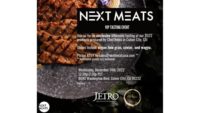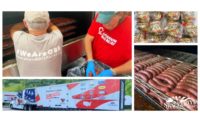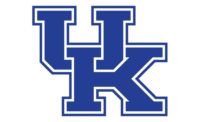Of all the American cities that are renowned for their seafood, Louisville, Ky. might not be an obvious choice. However, one former meat shop has garnered nationwide recognition for its array of seafood specialty products. Whether it’s smoked trout, caviar or a salmon burger, Shuckman’s Fish Co. & Smokery is bringing innovation to the seafood category.
The Shuckman family has been helping to feed Louisvillians since 1919, says current president Lewis Shuckman. His grandfather started the company almost 100 years ago as a supermarket and a butcher shop. He quickly became a big part of the community, especially in the Flood of 1937 that devastated the area.
“When the flood came, my grandfather moved all the groceries to the second floor. Neighbors that had boats would pick people up and bring them over to Shuckman’s Grocery, and he would hand them their groceries out the window on the second floor,” Shuckman says. “He would write their name down. After everything was over, and Louisville survived the big flood, everyone paid him off. Not one person cheated him out of a nickel.”
Lewis Shuckman is the third generation to run the family business. He noticed a change in his customers’ buying habits, and that resulted in a brand-new direction for the company.
“Back in the late ‘80s, we noticed a change in proteins. We noticed with our fin fish and crustaceans and freshwater species, we saw an increase. We just continued to see this increase, and we made a decision that this was the direction for us to go. It was a trend, and the customer base was pushing us in that direction, which was the fish business,” he says.
Shuckman’s offers products like a smoked salmon, rainbow trout or whitefish, all hand-sliced. However, some of its most popular products harken back to its meat processing history. The company offers salmon breakfast sausages, bratwurst and Italian sausages.
“We do it the old-school way. It’s ground, it’s not chopped, and then we stuff it into a hog casing and hand-twist it,” he says. “That’s a market that I think really needed attention. We were in the sausage business, so I just took the recipes from my grandfather and my dad and incorporated those into the salmon.”
The company took a couple of years to fine-tune the salmon sausages, making sure that they’d be a successful product out of the gate. The decision to make it a hand-twisted product with natural casings was made to keep the ends of the sausage closed. If the ends were left open, the protein would leak out of the casing when put on the grill.
“You get an extremely healthy protein, but it’s presented in an old school format,” he says. Shuckman relates the story about finding a prospective customer who hadn’t eaten a bratwurst in five years because of doctor’s orders, but he was able to eat all the Shuckman’s salmon brats that he wanted.
The idea of the salmon burgers came about after looking at the other products that are on the marketplace. He said that most of the products had heavy amounts of salt, pepper, sugar and other spices. The Shuckman’s version has a much simpler ingredients list.
“We talked to our customers who said, ‘We can do that [adding spices]. We can pick up a salt and pepper shaker.’ That launched that product,” he says.
Along with its seafood products, Shuckman’s makes award-winning smoked cheeses under the Mimi’s Garden Fresh label. It is also the exclusive manufacturer of Kentucky Spoonfish Caviar.
“That comes from a species called the paddlefish. This paddlefish is in the same family as the sturgeon. In Kentucky, we harvest them for the meat and the caviar,” he says.
The Kentucky Caviar has been featured everywhere from the pages of Wine Spectator and The New York Times to Good morning America and Emeril Lagasse’s television show. Shuckman says that the caviar industry in the United States used to be 60 percent European, with the countries of Iran, Russia and Romania dominating the market. Over the last 10 years, the numbers have completely changed, and Shuckman is proud of the contribution that his business has made in turning the tide.
“Now 60% of the caviar consumed in the United States is American. We’re proud of that,” he says.




Report Abusive Comment